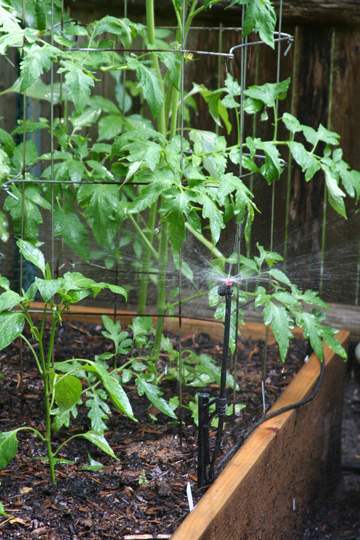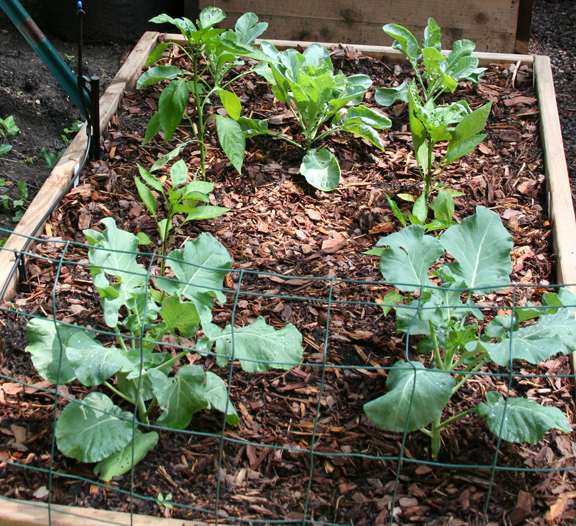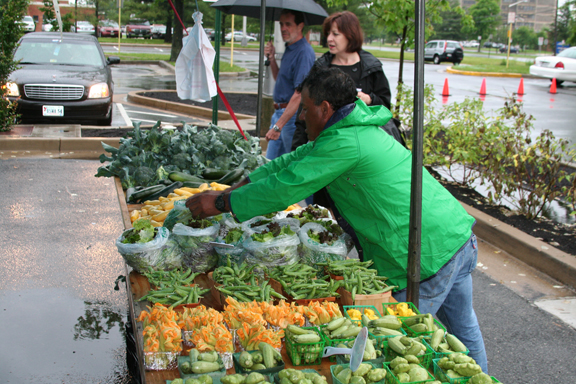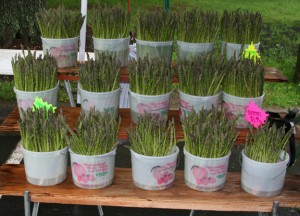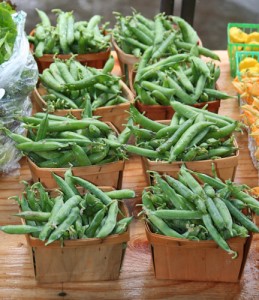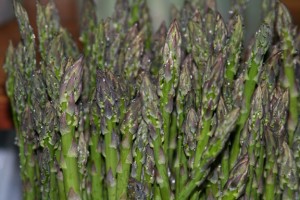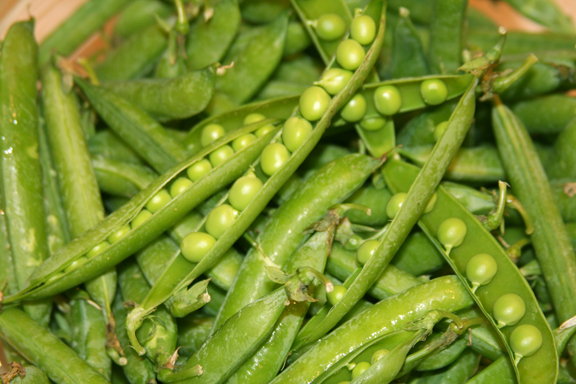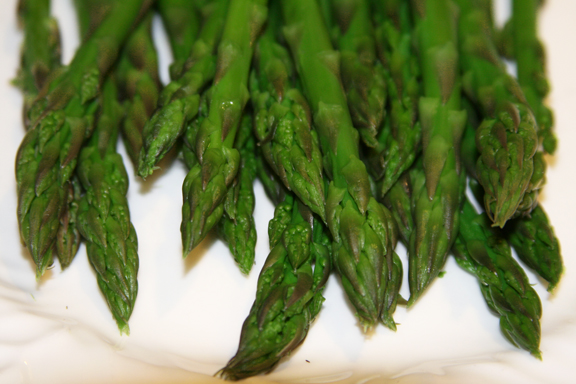I know what you are saying:
“Asparagus, Peas, now Vegetable gardens – Tommy, what the hell is going on? There’s not a PIG to be found! At least cook up a COW, for goodness sakes! I’d even be happy with a CHICKEN!”
And here’s what I have to say: “Relax, ya whiners! The Pork is coming soon!” I just have to take a little bitty break into the Veg Universe – It is Spring, after all! Try some peas, eat some asparagus – And maybe by next month you’ll be able to fit back into your swimsuit and feel good about stuffing your face with BBQ! Think of this as a “Health Break,” before I turn you back around and send you on a one way trip on the Meat Train! Don’t worry, there are good things coming up: Dual Bacons (Maple-Cured and Canadian), Tommy’s Famous Beef Jerky, and maybe even some surprises – Can you say Spatchcocked? Google it and you’ll know what I mean.
In the meantime, you are STUCK with Vegetables – Take a look at the photo above – You’ll see radishes, four types of beans, numerous tomatoes, yellow squash, peppers, and Japanese eggplant. Oh, and those ARE tips of Walla-Walla onions at the very bottom of the frame – You have a good eye! What you don’t see are Bush Baby container squash, zucchini, peas, lettuce, and strawberries. I’m not sure about the last 3, as they all got a late start due to the fact that I completely re-did my garden and added raised beds.
The raised beds are nice, but I also bought 4 ‘Smart Pots.’ These are collapsible black containers for growing vegetables, made out of porous fabric. So far, the potatoes in the pots seem to be doing better, even though they were planted below the ones in the beds. I’ll keep you posted on how they do – They might just be the answer for those that do not have much room to grow things.
Try this – Peel a BUNCH of garlic (maybe a whole head!), add a handful of rosemary(not the twigs please – save those for pickin’ yer teeth later), some salt and pepper, grind this up in a food processor with some olive oil (how much depends on how runny you want this), and slather on chicken or lamb. Keep in the fridge for a few hours or overnight. Throw on Grill. Eat. Convince someone else to do the dishes.
The mint is good with Lamb as well – You could blend one large handful with 2 cloves of garlic, salt, pepper, and olive oil for a quick marinade, but I find that, after cooking, the mint gets really muted compared to other herbs. Instead, I tend to use mint with fresh peas (there I go again!), and the ever-present recipe from Leslie’s mother Jane – The queen of all cocktails, Orange Mint Drink – Yup, Orange, Mint, and Alcohol, how could you go wrong? I’ll have to convince her to share her recipe with you, and you’ll never make a Mojito again – It’s THAT good!
I just finished my automatic watering system – I’ve been using Raindrip for years – Debby used to use a drip system, and it really is very easy – And saves water too. I tried some micro-sprinklers this year as I could not find the misters that I like. The jury is still out, although I think I prefer the latter.
These systems can be a pain to set up and change around every year – But the time they save will more than make up for the set up once they are up and running. I even have them watering hanging pots.
I must say, however, and you gardeners out there will probably agree with me – There is something relaxing, refreshing, and Zen about hand watering your garden, which I will still do. But when you’ve had a long, hectic day, and dinner needs to get on the table, it is so nice to be able to turn on one valve, come back twenty minutes later to turn it off, and you are finished!
This photo is not mine but rather was taken by my wife. We inherited this wood furniture years ago when Debby died, and it was ugly and trashed even then. When Leslie saw what the pressure-washer did to our patios, she grabbed it out of my hand and spent the weekend methodically going over our green, dirty, nasty outdoor furniture that no-one wanted to sit on. She then sealed it the next week and it looks brand-new! Actually, it looks better than new. I keep telling her that our back yard is starting to resemble a “Smith and Hawken” catalog…



